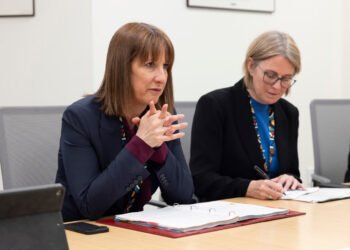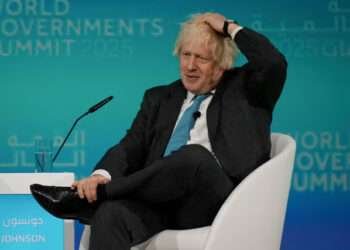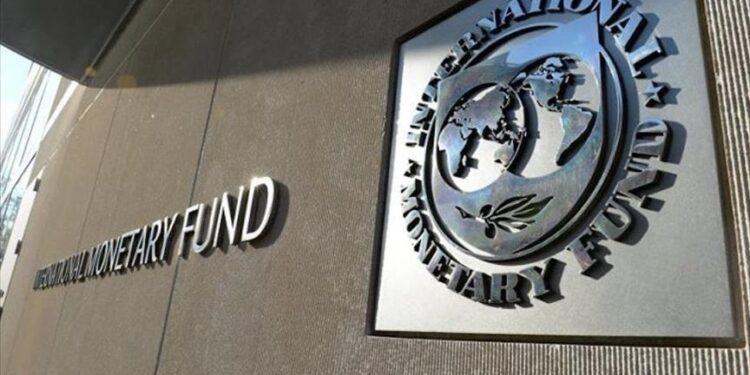Former Prime Minister Tony Blair has advised UK Prime Minister Keir Starmer against retaliatory measures in response to US tariffs, warning that such a move would not be in the country’s “best interests.”
The call for restraint comes as the UK government scrambles to navigate the economic shock triggered by President Donald Trump’s decision to impose a blanket 10 percent tariff on British exports to the United States.
Starmer is set to engage with international leaders over the weekend to discuss possible responses to the new trade barriers, which have rattled global markets and raised concerns about the impact on Britain’s economic outlook. The sweeping US tariffs have led to fears that the Chancellor’s fiscal headroom could be significantly diminished, prompting urgent government consultations.
Speaking at King’s College London, the former prime minister questioned the rationale behind the tariff policy, stating, “I don’t think it is in the UK’s best interest to retaliate.” However, he admitted uncertainty about how the situation would unfold.
Meanwhile, Downing Street dismissed Trump’s assertion that Starmer was “very happy” with Britain’s treatment under the new tariffs, clarifying that the UK remains “disappointed” by the move. Despite these frustrations, No. 10 has indicated that Starmer is focused on diplomatic engagement rather than immediate retaliation.
However, the government has already signaled its willingness to impose countermeasures should negotiations fail to yield a favorable outcome. Officials are currently reviewing an extensive 417-page list of potential US goods to target with tariffs.
UK Urged To Explore Alternatives Amid Trump’s Tariffs
Despite these preparations, some economic experts have cautioned against relying solely on a prospective trade agreement to shield Britain from tariffs. Former Treasury Minister Lord Jim O’Neill warned that betting entirely on a deal with the US could be risky, suggesting that the UK should instead align with other G7 nations to apply collective pressure on Washington.
O’Neill advised against the UK positioning itself as the US’s “best friend in the developed world”, arguing that the prospect of a favorable trade deal remains unlikely unless Britain concedes on issues it has previously opposed, such as importing US’s chlorinated chicken. Instead, he proposed that the UK should work alongside other G7 members, excluding the US, to negotiate joint tariff reductions, particularly in the services sector where Britain has a competitive advantage.
He further recommended that Britain should take a more assertive approach by borrowing to invest in infrastructure, strengthening trade relationships with China and India, and fostering economic growth to mitigate the impact of US protectionist policies. By doing so, he suggested, the UK could “minimize the Trump interference to a self-destruct button” for the US economy rather than allowing it to damage Britain’s financial stability.
Asked about O’Neill’s recommendations, a Downing Street spokesperson reaffirmed Starmer’s commitment to engaging with global allies.
“The prime minister is concentrating on his engagement with our global partners, and you will see evidence of that this weekend. But as we’ve said before, we will be maintaining a cool-headed and pragmatic approach, and one that is grounded in our national interest.”
Downing Street spokesperson
Chancellor Rachel Reeves echoed this sentiment, emphasizing the government’s determination to secure the best possible deal for Britain.
“Well, of course, we don’t want to see tariffs on UK exports, and we’re working hard as a government in discussion with our counterparts in the US to represent the British national interest and support British jobs and British industry.”
Chancellor Rachel Reeves

Despite ongoing negotiations, economic analysts warn that the immediate fallout from Trump’s tariffs could have serious repercussions for the UK economy. Even if a deal is reached, experts anticipate significant disruptions to trade flows, with potential consequences for businesses and industries reliant on exports to the US.
READ ALSO: Lawyers Not Liable For Missing ECG Containers- Mensah Thompson





















